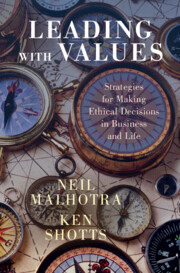When considering the implications of the shareholder-stakeholder debate in defining the purpose of a company, epistemological clarity is vital in this emerging theory of the firm. Such clarity can prevent recurrence based solely on rephrasing key terms. To understand how various stakeholders develop and interpret a shared purpose, I argue for the necessity of a pragmatist approach that is normative and process-oriented. Mental models play a crucial role in interpretive processes that define decision-making, where individual perspectives converge. The figures of Milton Friedman and Ed Freeman serve as “beacons,” as artefacts, in the transmission of knowledge through which we, as individuals, shape a shared understanding. In current societies, profound polarization obstructs solutions to grand challenges. Pragmatism starts by questioning the underlying values of everyone involved. It assumes that sound deliberative processes are the only way to reach real solutions—not only for the mind but, above all, for the heart.


